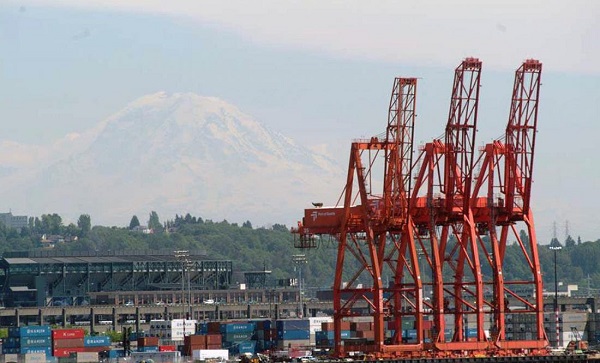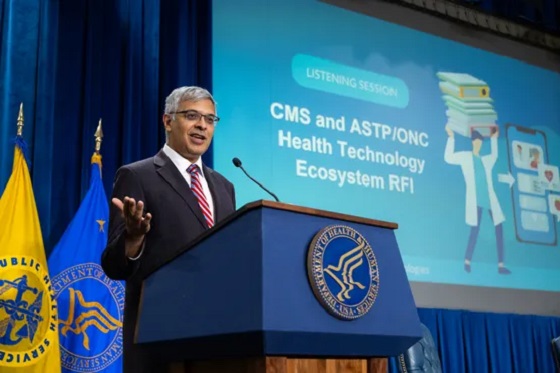Business
U.S. Seizes Fentanyl Shipment From Canada In Seattle, As Washington Pressures Ottawa on Crime Networks

U.S. Customs and Border Protection officers have intercepted a shipment containing more than one pound of fentanyl from Canada, marking the latest sign of an accelerating crisis along the BC-Washington border. The fentanyl, concealed within a package believed to have originated in British Columbia, was discovered during a targeted enforcement operation at a Seattle shipping facility on February 6.
The package contained a brown, rock-like substance wrapped in plastic bags. Subsequent testing confirmed it was fentanyl, the synthetic opioid driving tens of thousands of overdose deaths in North America each year.
Area Port Director Rene Ortega, speaking about the seizure, underscored its broader implications. “Fentanyl is an extremely dangerous synthetic drug that continues to devastate communities across the United States,” Ortega said. “CBP remains committed to using every available tool to stop these lethal substances before they reach our streets.”
The latest seizure is part of an escalating pattern that has prompted increasingly aggressive responses from Washington. President Donald Trump has warned of sweeping tariffs in the coming weeks unless Ottawa delivers a credible, actionable plan to crack down on transnational crime networks driving fentanyl production. These networks—operating primarily out of British Columbia—are deeply entrenched with organized crime groups from China and Mexico.
The Bureau has reported extensively on Washington’s mounting frustration with Canada’s handling of the fentanyl crisis. BC Mayor Brad West, who has been in direct communication with senior U.S. officials, has described an urgent shift in tone from American law enforcement and intelligence agencies. In a high-level 2023 meeting with U.S. Secretary of State Antony Blinken, West was briefed on just how seriously Washington views Canada’s role in the illicit drug trade.
“This is no longer just a Canadian domestic issue,” West told The Bureau. “Secretary Blinken made it clear that the Biden administration sees fentanyl as an existential threat. They’re building a global coalition and need Canada fully on board. If we don’t show real progress, the U.S. will protect itself by any means—tariffs or otherwise.”
Concerns extend beyond law enforcement. According to multiple sources with direct knowledge of U.S. intelligence assessments, American agencies have begun withholding key evidence from their Canadian counterparts, citing a lack of confidence that Ottawa will act on it. West confirmed that in his ongoing discussions with senior U.S. officials, they have voiced alarm over the level of access major figures in Asian organized crime appear to have within Canada’s political class.
“They’re basically asking, ‘What’s going on in Canada?’” West said.
The frustration is not new. For years, U.S. and international law enforcement agencies have sought to curb the transnational reach of organizations like Sam Gor, the powerful Asian organized crime syndicate that dominates much of the fentanyl precursor supply chain. But Canada’s response has been widely seen as inadequate. Critics argue that political sensitivities and reluctance to confront entrenched criminal networks have left Canadian law enforcement hamstrung.
The question now is whether Ottawa will take decisive action. Bringing forward measures as sweeping as a RICO-style anti-mafia statute or invoking the notwithstanding clause to bypass legal obstacles to tougher enforcement would represent a sharp departure from the status quo. Both approaches would require confronting entrenched political, legal and economic interests, as well as explaining why existing laws have failed to secure convictions against the most powerful actors in organized crime.
West believes the shifting geopolitical landscape may force Ottawa’s hand. Washington’s patience, he warns, ran thin years ago—and the U.S. is now signaling it will no longer wait.
The Bureau is a reader-supported publication.
To receive new posts and support my work, consider becoming a free or paid subscriber.
Business
RFK Jr. says Hep B vaccine is linked to 1,135% higher autism rate

From LifeSiteNews
By Matt Lamb
They got rid of all the older children essentially and just had younger children who were too young to be diagnosed and they stratified that, stratified the data
The Centers for Disease Control and Prevention (CDC) found newborn babies who received the Hepatitis B vaccine had 1,135-percent higher autism rates than those who did not or received it later in life, Robert F. Kennedy Jr. told Tucker Carlson recently. However, the CDC practiced “trickery” in its studies on autism so as not to implicate vaccines, Kennedy said.
RFK Jr., who is the current Secretary of Health and Human Services, said the CDC buried the results by manipulating the data. Kennedy has pledged to find the causes of autism, with a particular focus on the role vaccines may play in the rise in rates in the past decades.
The Hepatitis B shot is required by nearly every state in the U.S. for children to attend school, day care, or both. The CDC recommends the jab for all babies at birth, regardless of whether their mother has Hep B, which is easily diagnosable and commonly spread through sexual activity, piercings, and tattoos.
“They kept the study secret and then they manipulated it through five different iterations to try to bury the link and we know how they did it – they got rid of all the older children essentially and just had younger children who were too young to be diagnosed and they stratified that, stratified the data,” Kennedy told Carlson for an episode of the commentator’s podcast. “And they did a lot of other tricks and all of those studies were the subject of those kind of that kind of trickery.”
But now, Kennedy said, the CDC will be conducting real and honest scientific research that follows the highest standards of evidence.
“We’re going to do real science,” Kennedy said. “We’re going to make the databases public for the first time.”
He said the CDC will be compiling records from variety of sources to allow researchers to do better studies on vaccines.
“We’re going to make this data available for independent scientists so everybody can look at it,” the HHS secretary said.
— Matt Lamb (@MattLamb22) July 1, 2025
Health and Human Services also said it has put out grant requests for scientists who want to study the issue further.
Kennedy reiterated that by September there will be some initial insights and further information will come within the next six months.
Carlson asked if the answers would “differ from status quo kind of thinking.”
“I think they will,” Kennedy said. He continued on to say that people “need to stop trusting the experts.”
“We were told at the beginning of COVID ‘don’t look at any data yourself, don’t do any investigation yourself, just trust the experts,”‘ he said.
In a democracy, Kennedy said, we have the “obligation” to “do our own research.”
“That’s the way it should be done,” Kennedy said.
He also reiterated that HHS will return to “gold standard science” and publish the results so everyone can review them.
Business
Elon Musk slams Trump’s ‘Big Beautiful Bill,’ calls for new political party

From LifeSiteNews
By Robert Jones
The Tesla CEO warned that Trump’s $5 trillion plan erases DOGE’s cost-cutting gains, while threatening to unseat lawmakers who vote for it.
Elon Musk has reignited his feud with President Donald Trump by denouncing his “Big Beautiful Bill” in a string of social media posts, warning that it would add $5 trillion to the national debt.
“I’m sorry, but I just can’t stand it anymore. This massive, outrageous, pork-filled Congressional spending bill is a disgusting abomination. Shame on those who voted for it: you know you did wrong. You know it,” Musk exclaimed in an X post last month.
I’m sorry, but I just can’t stand it anymore.
This massive, outrageous, pork-filled Congressional spending bill is a disgusting abomination.
Shame on those who voted for it: you know you did wrong. You know it.
— Elon Musk (@elonmusk) June 3, 2025
Musk renewed his criticism Monday after weeks of public silence, shaming lawmakers who support it while vowing to unseat Republicans who vote for it.
“They’ll lose their primary next year if it is the last thing I do on this Earth,” he posted on X, while adding that they “should hang their heads in shame.”
Every member of Congress who campaigned on reducing government spending and then immediately voted for the biggest debt increase in history should hang their head in shame!
And they will lose their primary next year if it is the last thing I do on this Earth.
— Elon Musk (@elonmusk) June 30, 2025
The Tesla and SpaceX CEO also threatened to publish images branding those lawmakers as “liars.”
Trump responded on Truth Social by accusing Musk of hypocrisy. “He may get more subsidy than any human being in history,” the president wrote. “Without subsidies, Elon would probably have to close up shop and head back home to South Africa… BIG MONEY TO BE SAVED!!!”
( @realDonaldTrump – Truth Social Post )
( Donald J. Trump – Jul 01, 2025, 12:44 AM ET )Elon Musk knew, long before he so strongly Endorsed me for President, that I was strongly against the EV Mandate. It is ridiculous, and was always a major part of my campaign. Electric cars… pic.twitter.com/VPadoTBoEt
— Donald J. Trump 🇺🇸 TRUTH POSTS (@TruthTrumpPosts) July 1, 2025
Musk responded by saying that even subsidies to his own companies should be cut.
Before and after the 2024 presidential election, Musk spoke out about government subsidies, including ones for electric vehicles, stating that Tesla would benefit if they were eliminated.
This latest exchange marks a new escalation in the long-running and often unpredictable relationship between the two figures. Musk contributed more than $250 million to Trump’s reelection campaign and was later appointed to lead the Department of Government Efficiency (DOGE), which oversaw the termination of more than 120,000 federal employees.
Musk has argued that Trump’s new bill wipes out DOGE’s savings and reveals a deeper structural problem. “We live in a one-party country – the PORKY PIG PARTY!!” he wrote, arguing that the legislation should be knows as the “DEBT SLAVERY bill” before calling for a new political party “that actually cares about the people.”
It is obvious with the insane spending of this bill, which increases the debt ceiling by a record FIVE TRILLION DOLLARS that we live in a one-party country – the PORKY PIG PARTY!!
Time for a new political party that actually cares about the people.
— Elon Musk (@elonmusk) June 30, 2025
In June, Musk deleted several inflammatory posts about the president, including one claiming that Trump was implicated in the Jeffrey Epstein files. He later acknowledged some of his comments “went too far.” Trump, in response, said the apology was “very nice.”
With the bill still under Senate review, the dispute underscores growing pressure on Trump from fiscal hardliners and tech-aligned conservatives – some of whom helped deliver his return to power. Cracks in the coalition may spell longer term problems for the Make America Great Again movement.
-

 Business10 hours ago
Business10 hours agoRFK Jr. says Hep B vaccine is linked to 1,135% higher autism rate
-

 Alberta2 days ago
Alberta2 days agoAlberta Independence Seekers Take First Step: Citizen Initiative Application Approved, Notice of Initiative Petition Issued
-

 Crime23 hours ago
Crime23 hours agoNational Health Care Fraud Takedown Results in 324 Defendants Charged in Connection with Over $14.6 Billion in Alleged Fraud
-

 Crime2 days ago
Crime2 days agoSuspected ambush leaves two firefighters dead in Idaho
-

 Alberta2 days ago
Alberta2 days agoWhy the West’s separatists could be just as big a threat as Quebec’s
-

 Business2 days ago
Business2 days agoCanada Caves: Carney ditches digital services tax after criticism from Trump
-

 Health22 hours ago
Health22 hours agoRFK Jr. Unloads Disturbing Vaccine Secrets on Tucker—And Surprises Everyone on Trump
-

 Business2 days ago
Business2 days agoMassive government child-care plan wreaking havoc across Ontario



